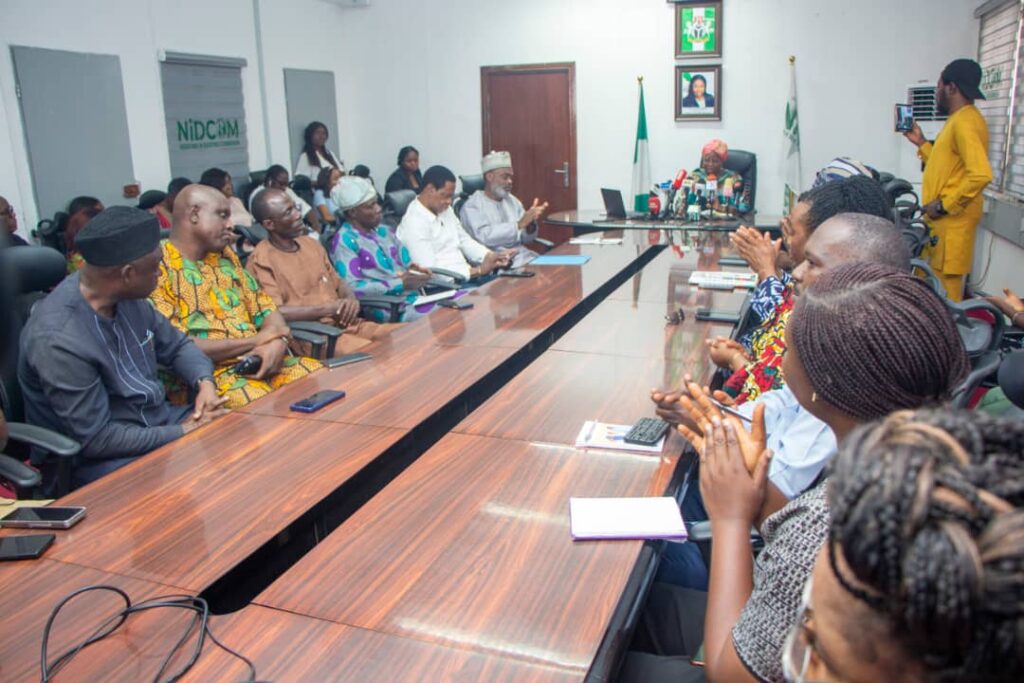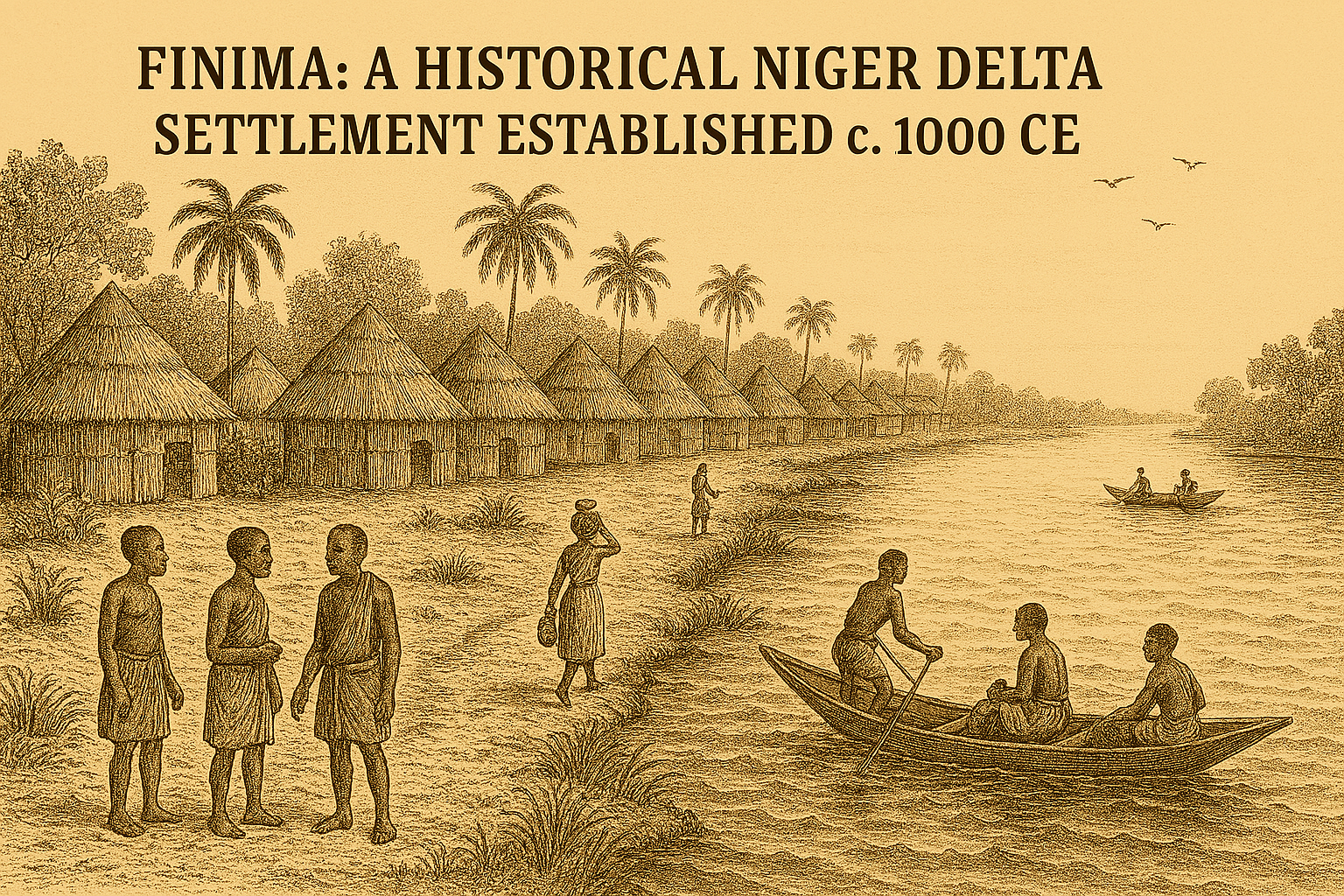BREAKING: Finima Youth Congress Engages at National Diaspora Day Youth Empowerment Summit 2025 in Abuja
BREAKING: Finima Youth Congress Engages at National Diaspora Day Youth Empowerment Summit 2025 in Abuja
Abuja, Nigeria — 25–26 July 2025
In a powerful convergence of leadership, vision, and youth empowerment, the 2025 National Diaspora Day Youth Empowerment Summit was held at the Banquet Hall of the Presidential Villa, Aso Rock, Abuja. The two-day event, held from 25th to 26th July 2025, brought together policymakers, youth leaders, diaspora influencers, and development advocates from across the globe. Among the prominent delegates was Comrade Darlington Tobin, Chairman of the Finima Youth Congress (FYC), who proudly represented his community and region with dignity and intent.
The summit, hosted under the auspices of the Nigerians in Diaspora Commission (NiDCOM) and themed around “Harnessing the Power of the Diaspora for National Development,” was a part of the annual National Diaspora Day celebrations, which have grown to become a cornerstone event in Nigeria’s global engagement calendar.

Dabiri-Erewa to Nigerian Youths: “Embrace Hard Work, Discipline, and Dignity”
During the summit, Hon. Abike Dabiri-Erewa, the Chairman/CEO of NiDCOM, issued a clarion call to the Nigerian youth. With her signature candour and deep connection to diaspora affairs, she urged young Nigerians to embrace the timeless values of hard work, discipline, and dignity.
“These three values—hard work, discipline, and dignity—are not just character traits, they are passports to enduring success,” she said.
“In a world that often rewards shortcuts, we must remind our youth that it is integrity and perseverance that truly open doors. Whether you live in Lagos or London, Bonny or Boston, your name and your values will precede you.”
Dabiri-Erewa’s address was met with standing ovations and strong applause from youth representatives and dignitaries alike, underlining the resonance of her message in today’s complex socio-economic landscape.
Finima Youth Congress Chairman, Comr. Darlington Tobin, Represents Bonny Youth with Honour
Of special significance to the Niger Delta region was the active participation of Comrade Darlington Tobin, the Chairman of the Finima Youth Congress, who travelled from Bonny LGA, Rivers State, to partake in the high-level dialogue sessions.
Comrade Tobin was not merely a spectator; his voice echoed through the halls of Aso Rock as he advocated for greater diaspora investment in youth-led innovation, the need for infrastructure development in coastal communities, and the inclusion of Niger Delta youths in national policy dialogues.
In his brief statement following the summit, Comrade Tobin remarked:
“It was an eye-opening, empowering experience to see how the Nigerian diaspora continues to invest their time, skills, and resources in our national development. We at Finima Youth Congress are committed to translating these engagements into tangible projects for the empowerment of our people.”
He also hinted at upcoming collaborative initiatives that would focus on entrepreneurship, ICT training, and climate resilience programmes in the Bonny Island region.
Youth Development Minister Hon. Ayodele Olawande Meets Comrade Tobin
Another highlight of the summit was the meeting between Comrade Darlington Tobin and Hon. Ayodele Olawande, Nigeria’s Minister of Youth Development. The interaction was both symbolic and strategic.
While specifics of their conversation were not disclosed, sources confirm that topics ranging from youth capacity-building, rural enterprise development, and the integration of youth voices in policymaking were discussed.
This meeting has sparked fresh hope that more youth-focused federal interventions may soon reach areas like Finima, which have historically been underserved in the national youth development landscape.
The Bigger Picture: Diaspora and Domestic Youth as Change Catalysts
National Diaspora Day is not merely a commemorative event—it is a symbol of Nigeria’s intent to bridge the gap between its sons and daughters abroad and the growing potential of its population at home. With over 15 million Nigerians living in the diaspora, their collective remittances, ideas, and connections offer a unique opportunity for national development.
This year’s summit gave young Nigerians a platform to engage directly with diaspora professionals and policy architects, learning how to:
-
Build sustainable partnerships between local youth groups and diaspora organisations
-
Utilise remittance-driven venture capital for SME growth
-
Foster youth inclusion in governance at all levels
-
Embrace digital transformation as a pathway to global competitiveness
For many attendees, it was a turning point in their leadership journey.
An Inspirational Message to Nigeria’s Youth
In a powerful concluding statement issued by Comrade Abraham Brown, Director of Social Welfare and Youth Development for Finima Youth Congress, young Nigerians were reminded of their inherent potential and the role they must play in shaping the future of the nation.
“To the young people of Nigeria at large, we say: believe in yourself, work hard, and never give up on your dreams. You have the power to shape Nigeria’s future and make it a better place for all.”
“As we celebrate the youth, we remind them that they are the future leaders of Nigeria. Be bold, be fearless, and be determined to make a positive impact in your communities.”
This message, coupled with the actions of leaders like Comrade Tobin, serves as a beacon of hope in a country yearning for transformation through its most valuable asset—its youth.
Where Do We Go from Here?
The journey ahead remains long and filled with obstacles, but events like the 2025 Diaspora Youth Empowerment Summit rekindle the collective resolve to invest in youth, prioritise education, embrace innovation, and harness the talents of Nigerians both home and abroad.
As Finima Youth Congress continues to work tirelessly to elevate the voices of the Bonny Island youth, the participation of its Chairman in national dialogues is not just a win for the community—it is a message that no region is too far, and no youth too small, to make a difference.
Final Thoughts
The future of Nigeria lies not only in the power of its economy or the strength of its institutions but in the dreams of its youth, the reach of its diaspora, and the unity of its people.
We look forward to seeing the initiatives, partnerships, and ideas from this year’s summit take root—especially in Finima and similar grassroots communities—where they are needed most.




You must be logged in to post a comment.